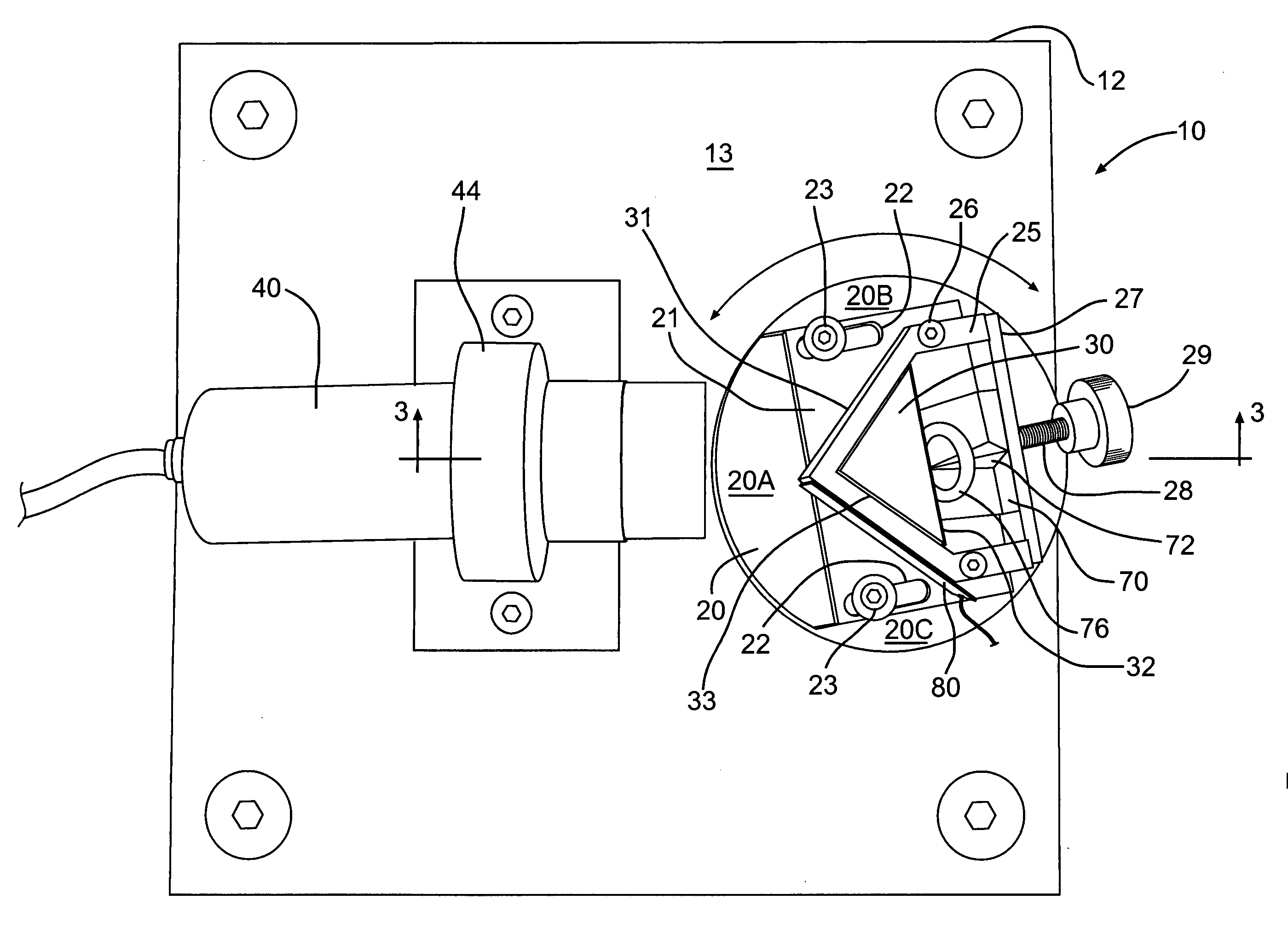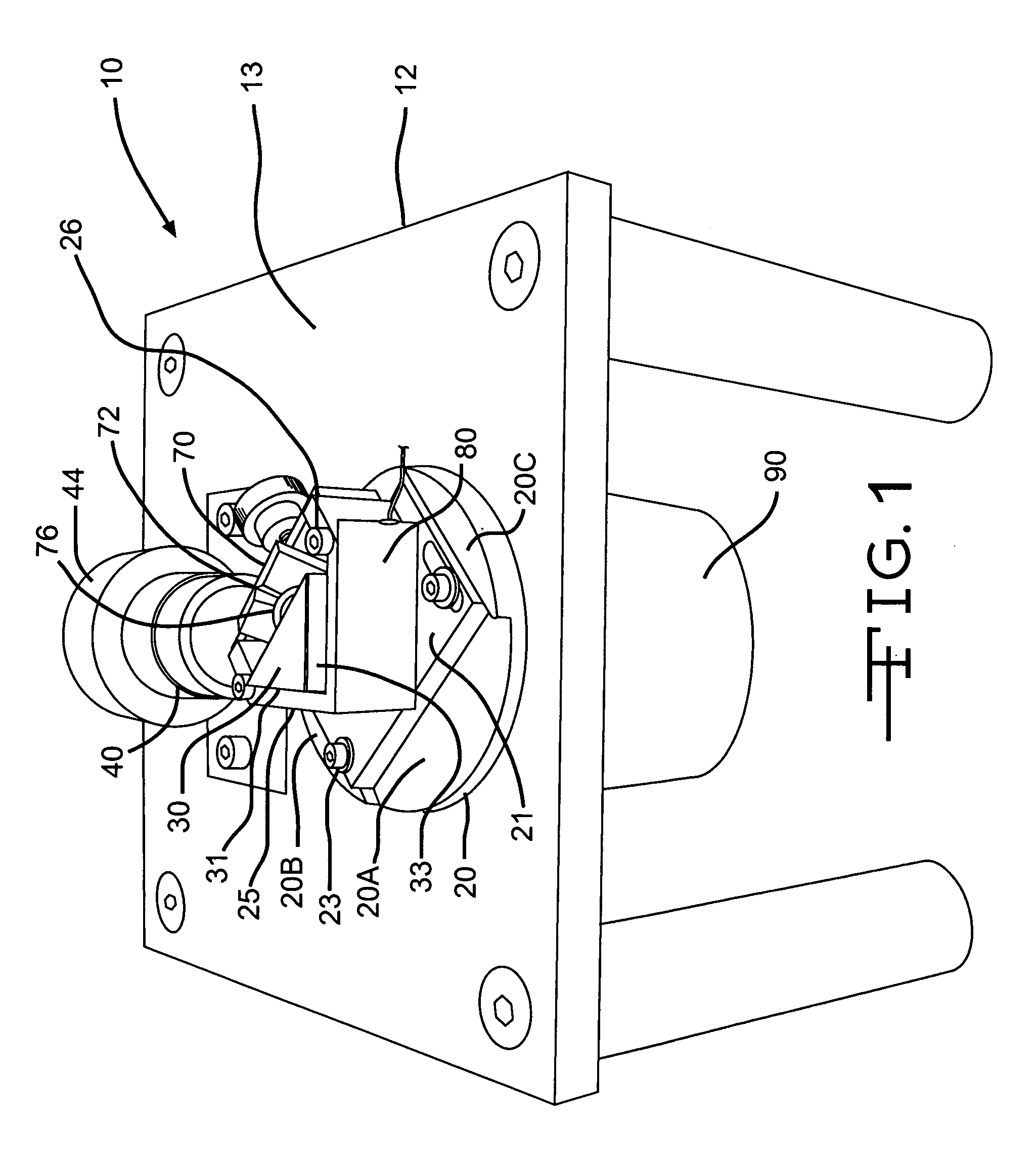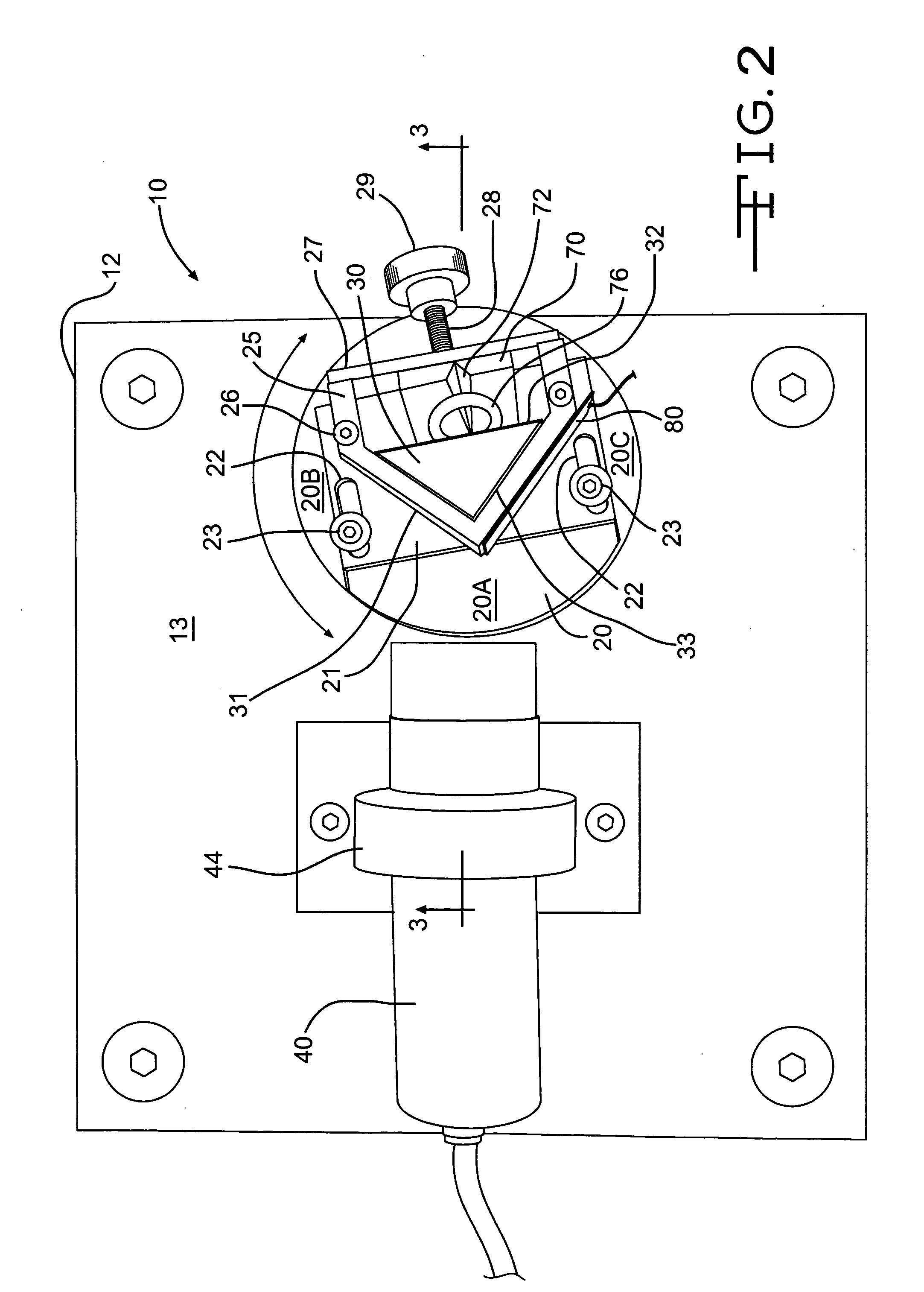Portable surface plasmon resonance biosensor
a surface plasmon and biosensor technology, applied in the field of surface plasmon resonance, can solve the problems of high cost, high cost, and high cost of fully used biacore spr biosensors, and achieve the effects of improving the efficiency of the instrumentation, reducing the cost of optical systems, and increasing the cost of the apparatus
- Summary
- Abstract
- Description
- Claims
- Application Information
AI Technical Summary
Benefits of technology
Problems solved by technology
Method used
Image
Examples
examples
[0072]The portable SPR biosensor device (10, 110) of described in FIG. 1-FIG. 3 was used to detect E. coli K12 with a bound lipid mannose-SH sample layer 66 on the gold metallic film 60. FIG. 15 illustrates the molecular formula of the mannose-SH as a capture reagent bound to gold (Au) thin metallic film 60 of the surface plasmon resonance biosensor device 10 described above. The mannose-SH molecule has a formula of C25H50O10S and a molecular weight (Mr.) of 542.31. A three-dimensional model of the mannose-SH is illustrated in FIG. 16. FIGS. 17A and B illustrate mannose-SH binding to the gold (Au) surface as the thin metallic film 60 of the surface plasmon resonance biosensor device 10, in ethanol. As illustrated in FIGS. 18A and B, the lectin concanavalin A (ConA) binds to the mannose-SH bound to the gold (Au) surface. E. Coli K12 can bind to the ConA surface if there is ConA in the liquid, as illustrated in FIGS. 19A and B.
PUM
 Login to View More
Login to View More Abstract
Description
Claims
Application Information
 Login to View More
Login to View More - R&D
- Intellectual Property
- Life Sciences
- Materials
- Tech Scout
- Unparalleled Data Quality
- Higher Quality Content
- 60% Fewer Hallucinations
Browse by: Latest US Patents, China's latest patents, Technical Efficacy Thesaurus, Application Domain, Technology Topic, Popular Technical Reports.
© 2025 PatSnap. All rights reserved.Legal|Privacy policy|Modern Slavery Act Transparency Statement|Sitemap|About US| Contact US: help@patsnap.com



